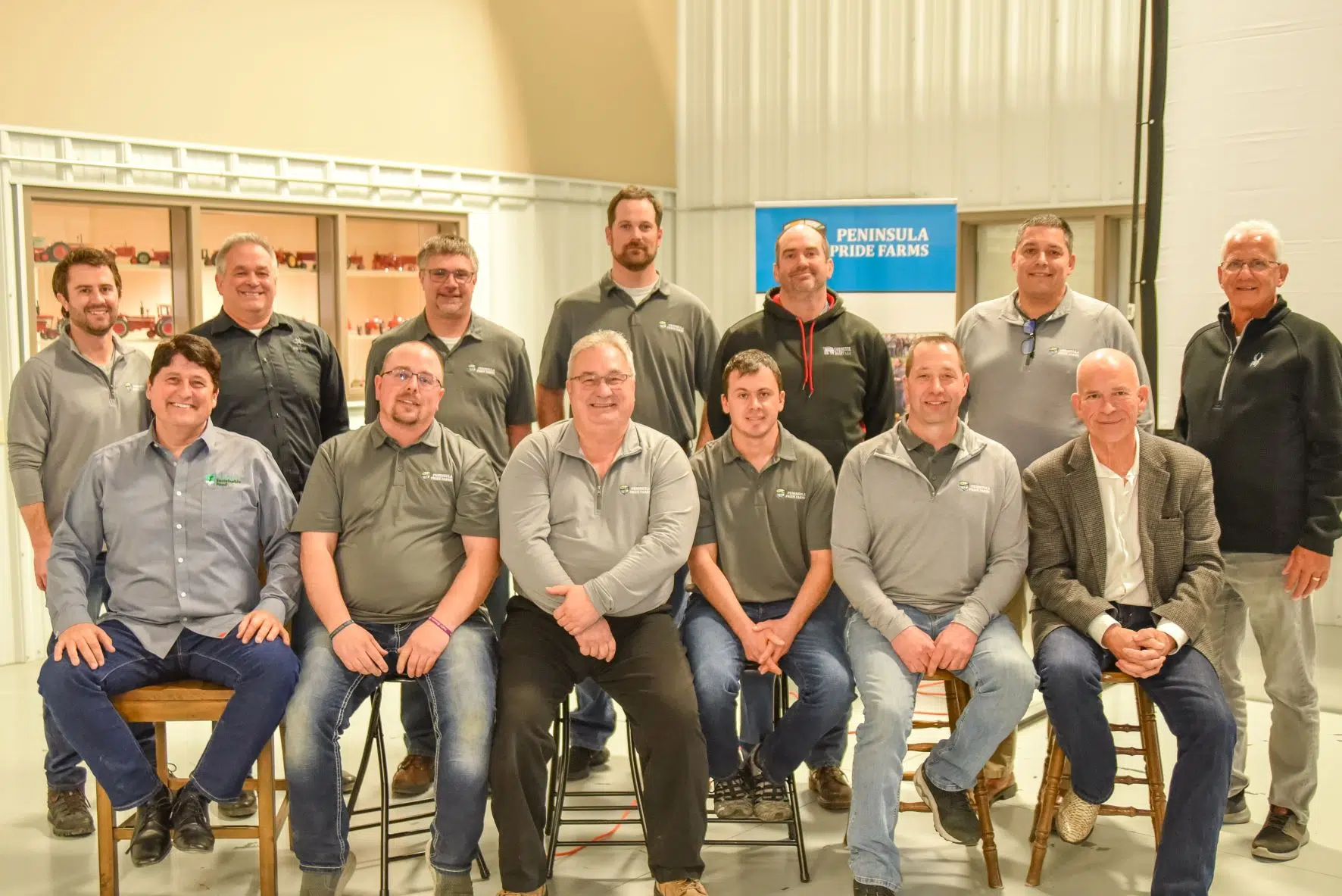KEWAUNEE, Wis. — Sustainability can take on many different meanings, but in Northeast Wisconsin, local farmers concentrate on water quality and soil health. At the Peninsula Pride Farms (PPF) annual meeting held on Feb. 14, it was evident that these farmers take sustainability seriously.
PPF President Don Niles shared the group’s accomplishments, including membership growth, a variety of conservation-focused meetings held and continued collaboration with diverse partners. The group shared an update on its sustainability project, now in its third year of data collection to quantify on-farm sustainability and support member farms to look at ways to improve the local watershed.
“This sustainability project will be a good measurement to show what impact the farmers are truly having in our watershed,” Niles said.
 |
Dr. Lee Briese, an independent crop consultant from central North Dakota, shared a unique message using a yo-yo to express the importance of details in soil health. Like learning yo-yo tricks, soil health starts small with important steps. It is essential to identify the problem or challenge. Briese said that research is critical to ensure success. He compared soil to Legos blocks – strong structure with stable aggregates.
“Soil is like a collection of Legos: strong, resilient and never breaks down,” Briese said.
Establishing good soil can happen in many different forms. Briese held an open discussion with the farmers in the room to examine local issues like compaction, weed pressure and crop rotations. He shared stories and pictures from his experience and discussed options local farmers can take home and try on their land.
Other presentations focused on PPF’s local conservation impact:
Shawn Wesener, data collection specialist for Farmers for Sustainable Food, shared the group’s 2022 member conservation survey results. Data shows great positive progression occurring.
Nathaniel Baeumler, a scientist from Houston Engineering, Inc., the consulting firm working on PPF’s sustainability project, reiterated this progress by sharing the objectives and tools used to analyze the 11 farm participants’ data
“We are helping create a story about the data so farmers can work with their agronomist to see what changes to make to reach their sustainability goals,” Baeumler said.
Mark Witecha, the Soil and Watershed Management Section Manager with the Wisconsin Dept. of Agriculture, Trade and Consumer Protection, provided information about DATCP programs. The Producer-Led Watershed Protection Grants, which supports groups like PPF with incentive funding, administration support, on-farm demonstrations, member education and outreach, started in 2016. DATCP has funded 45 groups through the years. By tracking the progress of these groups, DATCP has estimated benefits from practice implementation:
- 219,638 pounds of phosphorus prevented from leaving farm fields
- 342,163 tons of soil erosion prevented
- Through cover cropping and no-till, carbon dioxide emissions were reduced by 85,805 tons
 |
A farmer panel featuring 6 members focused on innovative methods of improving soil. Barry Bubolz from the Natural Resources Conversation Service moderated. The group discussed practices such as multiple cover crop approaches, planting green, strip tilling, roller crimping, interseeding into standing corn, using cover crops with green beans and rotational grazing on cover crops.
Following the public meeting, PPF held a members-only business meeting and elected a new board member, Keith Braun, representing Agropur. The group recognized outgoing board member Jesse Dvorachek. Niles remains on the board but is stepping back from his long-standing president position. Duane Ducat was elected president; Jacob Brey, vice president; Nathen Nysse, secretary; and Chris Schneider, treasurer. Other board members are Don Niles, Adam Barta, Paul Cornette, Nick Guilette, Scott Jeanquart, Lee Kinnard, Eric Olson, Dave Rueckl and Mike Vandenhouten.





